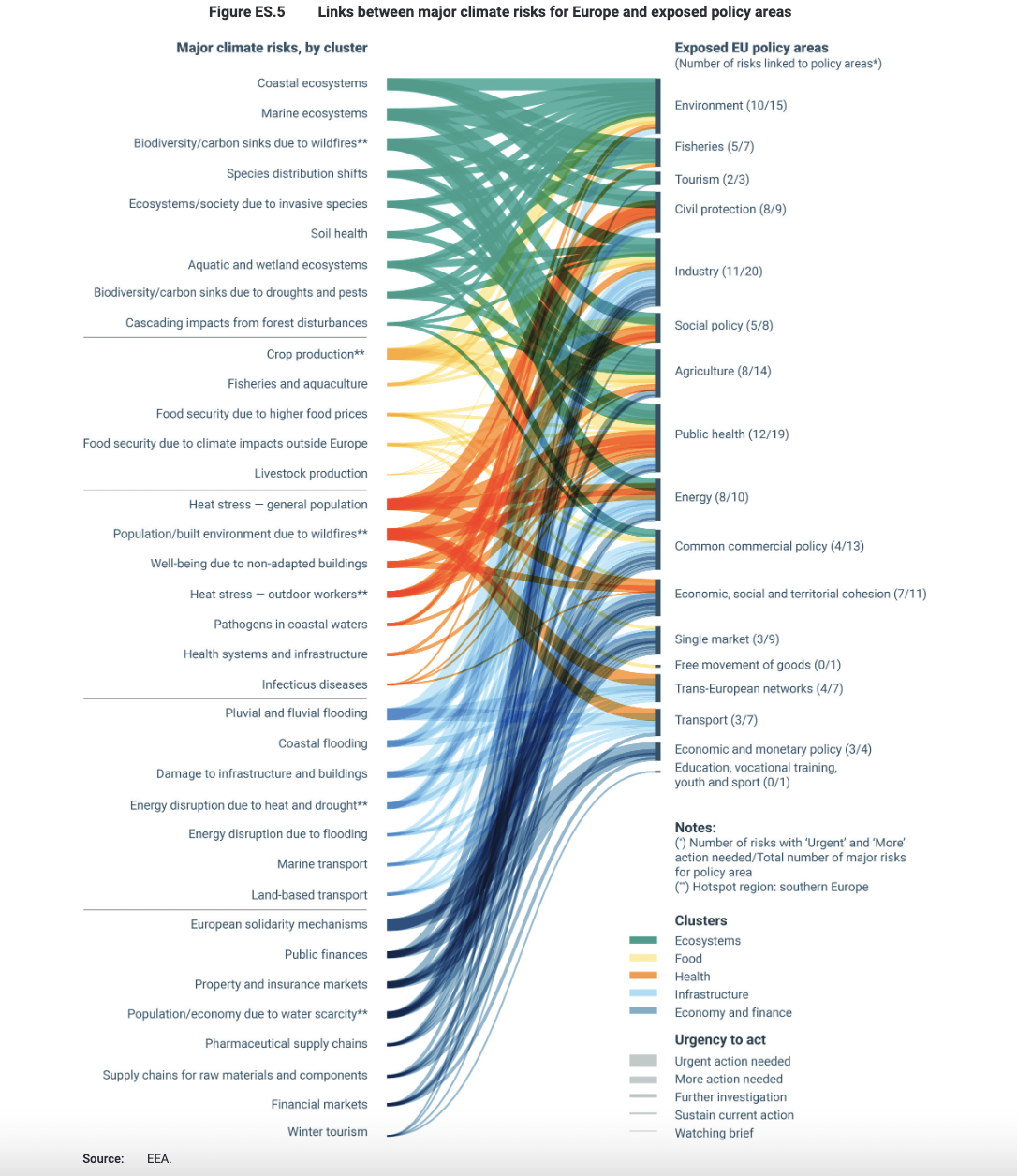The European Climate Risk Assessment Claims that Europe is not Well Prepared for Climate Risks
Overview:
The European Climate Risk Assessment (EUCRA) highlights the growing threat of extreme weather events across Europe, including heatwaves, droughts, wildfires, and flooding, which are expected to worsen despite optimistic climate scenarios. Urgent action is needed, especially in Southern Europe, where challenges in agriculture, health, and coastal resilience are pronounced. With 36 major climate risks identified, over half require immediate attention, including safeguarding ecosystems, mitigating heat-related health risks, and enhancing infrastructure resilience. Collaboration among the EU, member states, and local authorities is crucial to bridge knowledge gaps and implement effective policies, better preparing Europe for the challenges of climate change.
Summary:
The European Climate Risk Assessment (EUCRA) highlights the increasing threat of extreme weather events like heat waves, droughts, wildfires, and flooding across Europe. These risks are expected to worsen even under optimistic climate scenarios, impacting various sectors and livelihoods. The assessment emphasizes that Europe's policies and adaptation efforts are falling short in keeping pace with these growing risks. Urgent action is deemed necessary, especially in regions like Southern Europe, which are hotspots for wildfires and face challenges in agriculture, health, and coastal resilience due to heat and water scarcity.
The EUCRA identifies 36 major climate risks across ecosystems, food, health, infrastructure, and economy and finance. More than half of these risks require immediate action, with eight labeled as particularly urgent. Urgent measures are needed to protect ecosystems, mitigate heat-related health risks, enhance infrastructure resilience against floods and wildfires, and ensure the viability of solidarity mechanisms like the EU Solidarity Fund. Specific recommendations include shifting towards sustainable agricultural practices and improving urban planning and building standards to mitigate health and infrastructure risks associated with extreme heat.
Effective mitigation and adaptation efforts require closer cooperation between the EU, its member states, and local authorities. While progress has been made in understanding climate risks, policy implementation lags behind the escalating risk levels. The report calls for collaborative action at all levels of governance to address knowledge gaps, improve risk understanding, and strengthen legislation, governance structures, monitoring, and funding mechanisms. By enhancing cooperation and knowledge-sharing, policymakers can better prepare Europe to face the escalating challenges posed by climate change.
Source: https://www.eea.europa.eu/en/newsroom/news/europe-is-not-prepared-for


